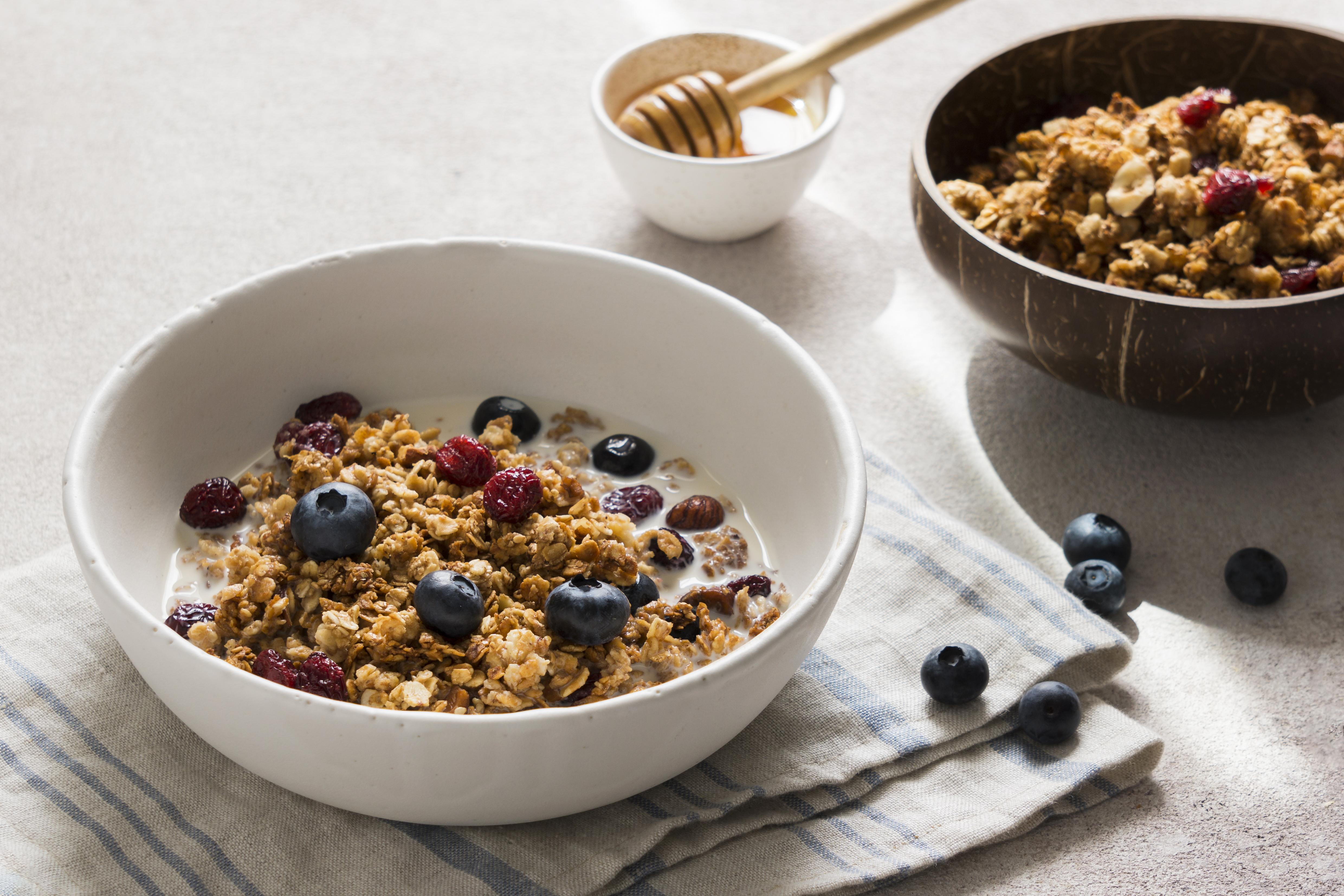How many calories does oatmeal have? Check before you eat!

Oatmeal, made with either milk or water, is a popular breakfast choice. It has many benefits: it’s easy to prepare, keeps you full for longer, and is packed with essential nutrients. In addition to B vitamins, oatmeal provides unsaturated fatty acids and important minerals like magnesium, iron, calcium, zinc, and potassium. But how many calories does oatmeal have, depending on the preparation method? And what additives can significantly increase its calorie content? Let’s find out before you eat!
Table of contents
Oatmeal - calories
The calorie content of oatmeal primarily depends on the type of oats used and any added ingredients. 100 grams of dry oats contain about 350 kcal. The calorie count of the final meal will vary based on how it’s prepared. The healthiest and lowest-calorie oatmeal is made by simply pouring hot water over the oats.
Here are the approximate calorie values for a 100g serving of oatmeal:
- Oatmeal made with water: 74 kcal
- Oatmeal made with cow’s milk: 400 kcal
- Oatmeal made with plant-based milk: 350 kcal
- Oatmeal with natural yogurt: 300 kcal
Dietitians often recommend using whole or rolled oats, as they are the least processed. Instant oats may be less filling and often contain added sugars and other harmful additives.
Oatmeal - nutritional value
Oats have a unique chemical composition and are rich in essential nutrients like magnesium, calcium, iron, phosphorus, potassium, sodium, and zinc. They also contain B vitamins, which are important for nerve function and overall well-being.
Oats are also a good source of carbohydrates, protein, and dietary fiber. They contain water-soluble beta-glucans and phytosterols. Numerous studies show that regular consumption of oats can have a positive effect on cholesterol levels, blood glucose concentration, and immune system function.
Due to their nutritional value, oats can be a great addition to your diet. However, it's important to prepare your oatmeal properly to maximize its health benefits.
Recommended products
Is oatmeal healthy?
Oatmeal can be enjoyed both warm and cold. Cooked oats have a higher glycemic index, so it’s better to prepare them with milk or warm water. For a healthy oatmeal:
- Choose whole or rolled oats.
- Add a source of protein, such as natural yogurt, milk, or soy milk.
- Include seasonal fruits (apples, pears, plums, blueberries).
- Include healthy fats (peanut butter, almonds, pumpkin seeds).
Thanks to its nutrient profile, oatmeal makes for a great breakfast option. To keep it low-calorie, avoid adding sugar. Instead, opt for spices like vanilla, cardamom, or cinnamon, which will make your meal both tastier and healthier.
What to pair with oatmeal?
Oats are low in calories, delicious, and filling, making them a popular choice among health-conscious individuals and those with an active lifestyle. However, sugar, fruit syrups, and sweetened yogurts can turn a nutritious meal into a calorie bomb. What can you add to oatmeal to keep it healthy and appetizing? There are many possibilities! Consider adding fresh fruit, nuts, or chia seeds.
Peanut butter is also a great addition to oatmeal - not only for its flavor but also for its high nutritional value. You can also add sugar-free fruit gel or natural nut cream sweetened with maltitol. With such a meal, you’ll start your day off right!

